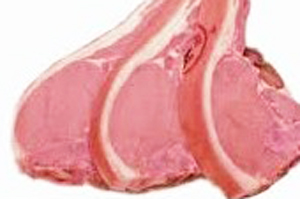Reducing crude protein enhances pork quality

Data confirm that dietary crude protein reduction enhances pork eating quality but negatively affects pigs’ growth performance.
In addition, it is suggested that betaine and arginine supplementation of lysine-deficient diets does not further increase intramuscular fat content but improves some pork sensory traits, including overall acceptability.
These results were drawn by Portuguese scientists that was published earlier this year in the Journal of Animal Science.
Trial with 40 entire male pigs
The researchers write: “Forty entire male pigs from a commercial crossbreed (Duroc × Large White × Landrace) were used to investigate the individual or combined effects of betaine and arginine supplementation in lysine-deficient diets on growth performance, carcass traits, and pork quality.
“In total, 8 pigs with roughly 59.9 bodyweight were randomly assigned to each of the following 5 dietary treatments:
• Normal lysine and crude protein diet (0.51% lysine and 16% crude protein; control);
• Reduced lysine and crude protein diet (0.35% lysine and 13% crude protein);
• Reduced lysine and crude protein diet with betaine supplementation (0.33%);
• Reduced lysine and crude protein diet with arginine supplementation (1.5%); and
• Reduced lysine and crude protein diet with betaine and arginine supplementation (0.33% betaine and 1.5% arginine).
More intramuscular fat, worse growth performance
Pigs were slaughtered at on average 92.7 kg bodyweight. The lysine-deficient diets (–35% lysine) increased intramuscular fat content by 25% and meat juiciness by 12% but had a negative effect on growth performance of pigs.
In addition, lysine-deficient diets increased L* and b* muscle colour parameters and perirenal fat deposition and decreased both HCW and loin weight. Betaine and arginine supplementation of lysine-deficient diets had no effect on intramuscular fat content but increased overall pork acceptability.
Arginine supplementation increasing meat tenderness
Arginine supplementation also increased meat tenderness. Differences in fatty acid composition of pork were not detected among dietary treatment groups. However, oleic acid was positively correlated with intramuscular fat content, juiciness, flavour, and overall acceptability of meat.
The research was carried out by M.S. Madeira, C.M. Alfaia, P. Costa, P.A. Lopes, S.V. Martins, J.P.C. Lemos, J. Santos-Silva, R.J.B. Bessa and J.A.M. Prates from the Universidade de Lisboa; and O. Moreira from the Instituto Nacional de Investigação Agrária e Veterinária, Portugal.











